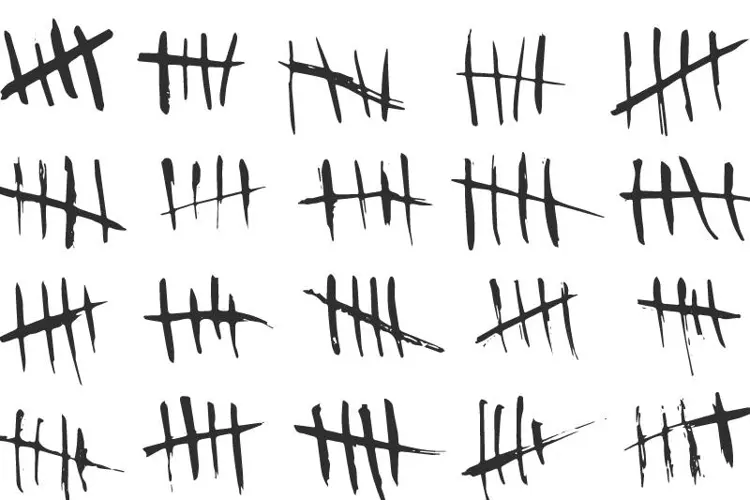A bill has been introduced in Congress to limit nicotine strength in vaping products. The bill is sponsored by Democratic Illinois Rep. Raja Krishnamoorthi.
The END ENDS Act—which stands for Ending Nicotine Dependence From Electronic Nicotine Delivery Systems—has been designated HR 4624. It would cap the nicotine in bottled e-liquid and prefilled devices at 20 mg/mL.
The idea comes from the European Union’s Tobacco Products Directive (TPD), which adopted that standard supposedly to protect children who might drink e-liquid. That’s not why Krishnamoorthi wants a limit though; he believes it will prevent youth use.
“Similar nicotine regulations have already been implemented in the United Kingdom, European Union, and Israel, where capping nicotine levels successfully deterred an uptick in youth vaping,”says the Congressman’s press release. “For example, while youth e-cigarette use in the United States has skyrocketed by 135% in the last two years to a point where almost 28% of American youth are vaping, less than 5% of U.K. youth are currently vaping.”
The creation of small devices that pack a cigarette-like nicotine punch has been one of the most important innovations in the history of vaping.
The actual reason for those wildly divergent numbers is the adoption of different metrics by each country’s government agencies. The American CDC focuses on past-30 day use (which may include as little as one puff in the past 30 days), while the British 5% figure measures weekly use. Weekly use is a better indicator of possible addiction.
In fact, the CDC’s National Youth Tobacco Survey also measures more regular use (more than 20 of the last 30 days). But since the result (5.8% in 2018) isn’t very alarming, it is largely ignored by anti-vaping politicians and interest groups. So they take the figure that represents experimental use, and pretend that it shows something more alarming than it really does.
The bill is clearly aimed at JUUL Labs, the controversial San Francisco pod vape manufacturer. The most popular JUUL products contain 59 mg/mL (5% by weight) nicotine. (JUUL also sells 35 mg/mL pods (3% by weight) in the United States, and pods with under-2% strength in the European Union and elsewhere.)
The nicotine strength in a JUUL is high by design, because the tiny atomizer and weak battery in the small device can’t deliver enough nicotine using standard nicotine strengths (24 mg/mL and below) to satisfy a regular smoker. But for a user who is not accustomed to nicotine the powerful hit can cause dizziness or a head rush often referred to as a nicotine buzz.
Looking at social media response to Krishnamoorthi’s proposal, a shocking number of vapers agree on a nicotine cap.
In traditional e-liquid, 5% nicotine would be almost unbearably harsh. JUUL created a new kind of e-liquid called nicotine salts by blending freebase nicotine with benzoic acid, which makes extremely high nicotine content palatable to the user. It is debatable whether the nic salts formulation itself makes nicotine more addictive, or whether the product simply packs more nicotine into each puff.
"The public health quandary with JUUL is that its strong nicotine hit is responsible both for helping many adult smokers quit and for increasing youth experimentation and abuse of the products,” says American Vaping Association President Gregory Conley.
While traditional e-liquid products have helped many smokers quit cigarettes, there is no denying that the ability to choose a high-nicotine product like JUUL or other nicotine salts products have been especially effective for others. The creation of small devices that pack a cigarette-like nicotine punch has been one of the most important innovations in the history of vaping.
It would be tragic if such a powerful tool for tobacco harm reduction was lost because a headline-hungry politician has targeted a company he doesn’t like for making a product he doesn’t understand. And Rep. Krishnamoorthi has clearly set his sights on JUUL Labs.
In the end, drug warriors don’t want compromise. People like Rep. Krishnamoorthi will never stop trying to completely eliminate vaping.
Krishnamoorthi oversaw two recent House Economic and Consumer Policy subcommittee hearings on vaping. The first was the widely publicized virtual crucifixion of JUUL Labs co-founder James Monsees, during which the Stanford techie was accused of almost every offense short of the Lindbergh kidnapping.
Looking at social media response to Krishnamoorthi’s proposal, a shocking number of vapers agree on a nicotine cap. That’s a serious mistake. While it’s uncertain whether the law would affect products intended to be diluted—like DIY nicotine base (which is prohibited by the TPD in Europe)—it’s a misunderstanding of the opposition to think they will simply ask for one sacrifice and then stop trying to ban and restrict products.
Restricting vaping products is never something to be encouraged. It only emboldens enemies of vaping to demand more limits and more rules that reduce choices for vapers and smokers. After the nicotine cap will be flavors. Then online sales. Then products that aren’t approved for smoking cessation. Then products sold within a mile of a school. Then advertising.
In the end, drug warriors don’t want compromise. People like Rep. Krishnamoorthi will never stop trying to completely eliminate vaping. Offering up a sacrifice to their hunger for power and control will only make them hungry for more.
The Freemax REXA PRO and REXA SMART are highly advanced pod vapes, offering seemingly endless features, beautiful touchscreens, and new DUOMAX pods.
The OXVA XLIM Pro 2 DNA is powered by a custom-made Evolv DNA chipset, offering a Replay function and dry hit protection. Read our review to find out more.
The SKE Bar is a 2 mL replaceable pod vape with a 500 mAh battery, a 1.2-ohm mesh coil, and 35 flavors to choose from in 2% nicotine.
Because of declining cigarette sales, state governments in the U.S. and countries around the world are looking to vapor products as a new source of tax revenue.
The legal age to buy e-cigarettes and other vaping products varies around the world. The United States recently changed the legal minimum sales age to 21.
A list of vaping product flavor bans and online sales bans in the United States, and sales and possession bans in other countries.



















